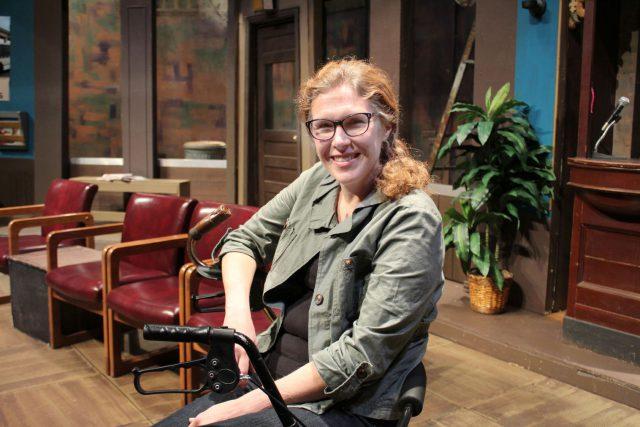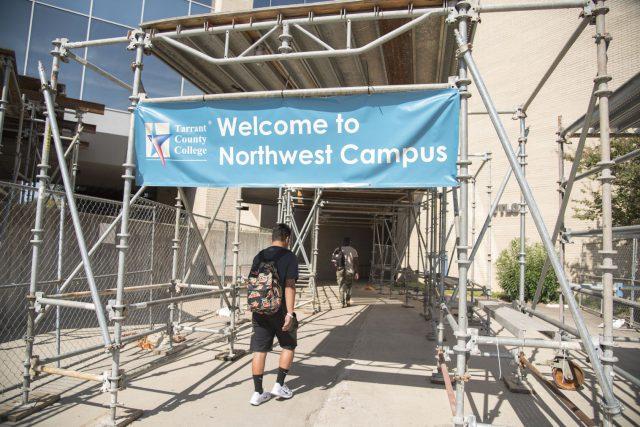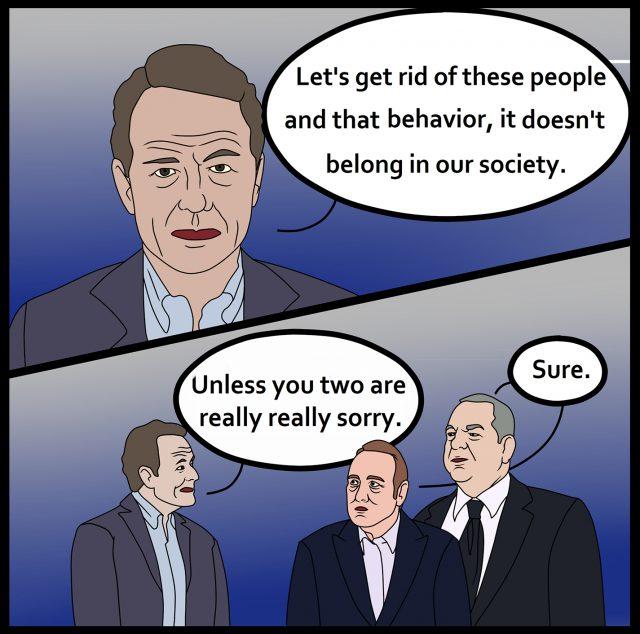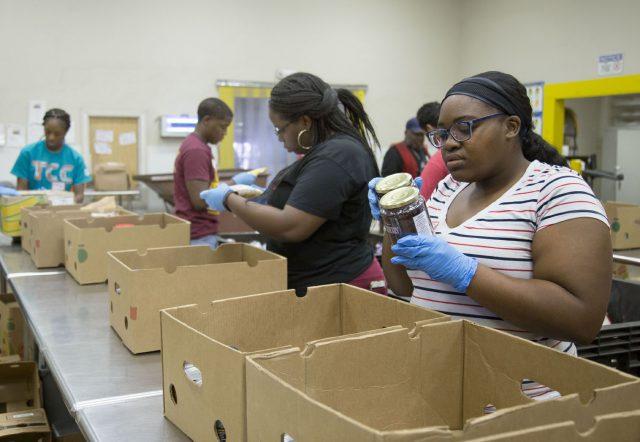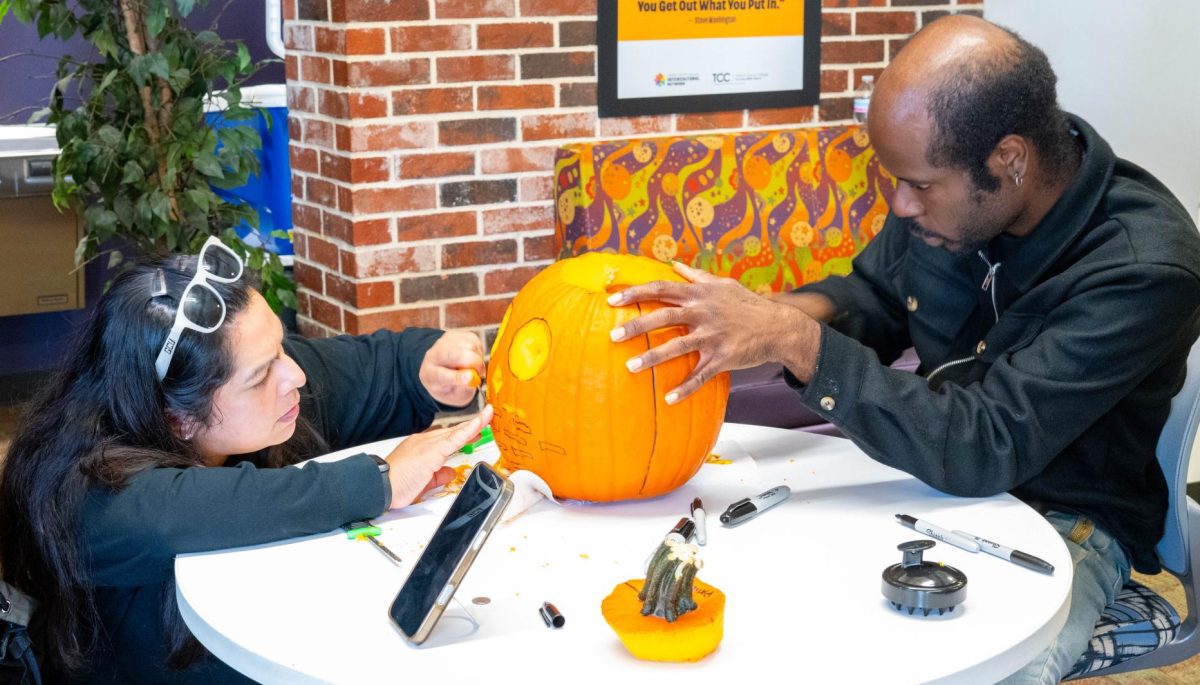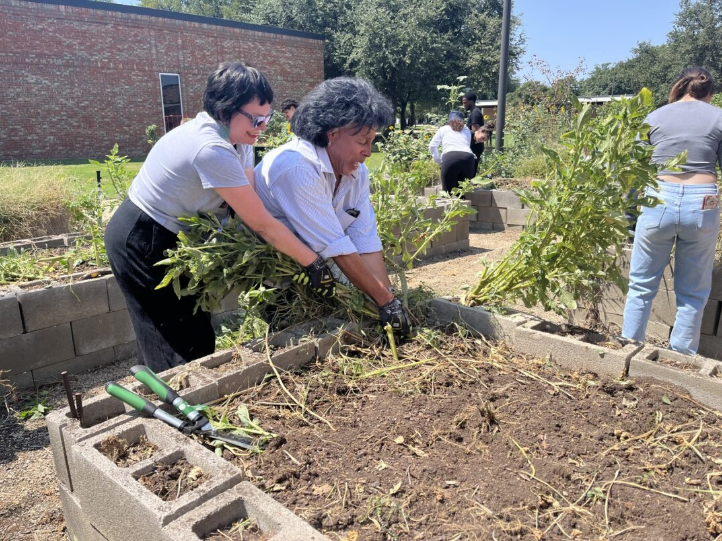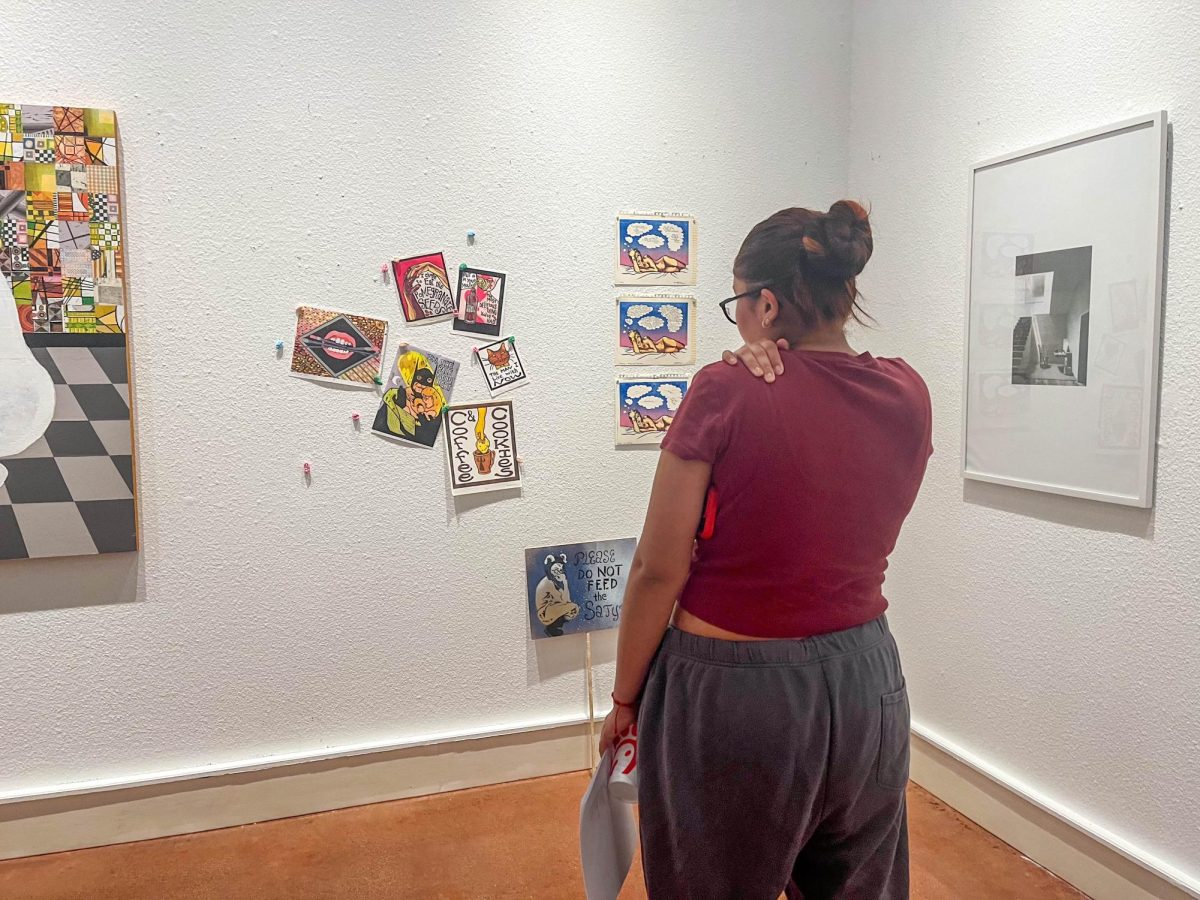By Richard Marmolejo/campus editor
Unwilling to let a rare, neuromuscular disease end her career, a South Campus theater adjunct instructor wrote a comedy about it.
It’s been almost three years since renowned local actress, and now playwright, Sherry Jo Ward officially was diagnosed with Stiff Person Syndrome, or SPS.
According to the National Organization for Rare Disorders, it is an “acquired neurological disorder characterized by progressive muscle stiffness (rigidity) and repeated episodes of painful muscle spasms.” It affects 1 in 1 million people, has no cure and its cause has yet to be identified.
“The disease is very rare,” Ward said. “There’s only about 300 people in the country that have it.”
Ward explained some early signs of the condition that she noticed before reaching out to medical professionals.
“Back in about December of 2014, I started having some unusual symptoms,” she said. “I was barely 40 at the time. So, it was things I did not expect at my age, like pain and numbness and then my muscles would just kind of seize up. By February of 2015, I was needing to use a walker.”
Ward has been a theater professional since she was an undergraduate at Abilene Christian University, where she met her husband, Thomas, a local actor and playwright. Since then, she has had two children and gained many awards from local theaters and contests.
“I have two kids, one is 12, and he is talking about being an actor,” Ward said. “My mother-in-law was a high school theater teacher. Our house is full of theater people.”
Prior to Ward’s diagnosis, she and her husband worked in Baylor’s theater department.
While there, they would take on acting gigs, which propelled her acting career, she said.
“I played some really demanding, physical, big roles,” Ward said. “So when we moved here, I was expecting it to start happening again. I had directors talking to me about wanting to use me for certain roles.”
Ward was already getting bookings and preparing to go to work when symptoms started. She felt helpless as doctors and neurologists initially could not find the cause of the problem.
“I started having really bad tremors that I had to leave work,” she said. “Then I just started falling. I’d be out walking the dog or walking from the restroom back to my office and fall. It was like my legs were filling up with cement.”
Ward said her third neurologist told her it could be Stiff Person Syndrome, something she had never heard of.
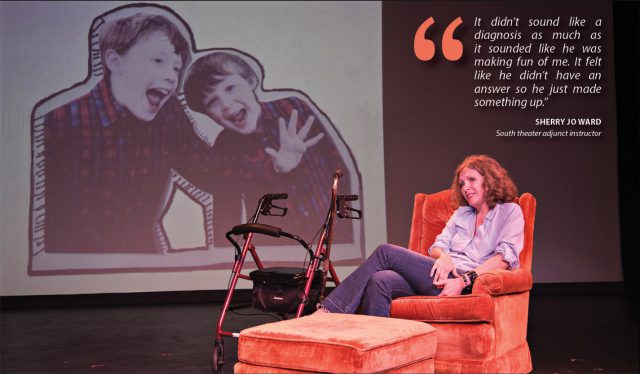
Courtesy of Mark Oristano
“It didn’t sound like a diagnosis as much as it sounded like he was making fun of me,” she said. “It felt like he didn’t have an answer, so he just made something up.”
A few days later after examining bloodwork, doctors confirmed it was SPS.
Soon, Ward stopped working and was on full disability. It all happened so fast, she said. She was 42 at the time, and it felt like she was retiring.
Ward said she was inspired to write by her friend Rene Moreno, an actor, director and educator who died recently and had been in a wheelchair.
“Right after my diagnosis, I went to have lunch with Rene Moreno,” Ward said. “We kind of talked about going from being an able-bodied actor to suddenly being disabled. He said, ‘You’re going to find a way to make this play out dramatically.’ He inspired me to write. That’s how Stiff came about.”
Ward was unsure how to go about writing the play at first, and it wasn’t until when teaching at TCC and riding the Mobility Impaired Transportation Service bus that she found the play’s structure — but on one condition, she said.
“I was not going to write it if it wasn’t going to be a comedy,” she said. “I had to incorporate some humor into it because that’s how we cope with things.”
The show debuted in Dallas and was directed by Marianne Galloway, head of Risk Theater Initiative. A run of the show recently finished at Stage West Theater.
“She’s [Galloway] hearing-impaired,” Ward said. “So, it’s like a deaf director and a disabled actor. She got things that other directors wouldn’t necessarily get just as far as vocabulary and the fitting in and adjusting to somewhat have a normal career.”
Galloway encouraged Ward when she was doubting her play’s ability to entertain the audience and motivated her to keep working on the production, Ward said.
“I was terrified,” she said. “At the dress rehearsal, I was crying. I didn’t know how the people would react. It was such an odd thing that I’d written. And she kept telling me, ‘You’re going to be surprised at the reaction.’ And sure enough, we ended up with a full house for all six performances and won awards from the Dallas Theater Critics Forum.”
Ward explained how she wrote the play to be portable and easy to work with and integrated a new concept to the show.
“It’s basically me in a chair, and I incorporated a PowerPoint presentation, which basically is another character in the show,” she said. “Sometimes, it has explanations of things that I’ve just said. Sometimes, it makes fun of me. And sometimes, it asks me questions.”
Recently, Ward also performed at Stage West during the production of Life Sucks, which she thinks is coincidental considering her situation. She enjoyed how the theater modified the backstage area for her walker and even incorporated it into the show.
“Stage West went above and beyond in making sure that I was comfortable and felt safe on stage,” she said.
On Halloween night, during the last performance of Stiff, she had three people raise their hand to acknowledge that they too had SPS, including someone that had flown in from Arizona.
“If you think about it, four out of the 300 people in the country that had it were all there that night,” Ward said. “It was crazy. I was so moved. It’s like other people that have it speak that language, you know.”
The show was so moving for one audience member, who suffers from SPS, that she is thinking of traveling to see the performance again, Ward said.
“I have a booking for the show in St. Louis in April,” she said. “She told me she’s thinking about going and bringing her husband because she wanted him to see it.”
Ward was surprised to see how people have enjoyed the play and related to her performances. It has encouraged her to continue in theater.
“I need to stay connected with theater,” she said. “It turns out I’m not ready to retire yet.”






















